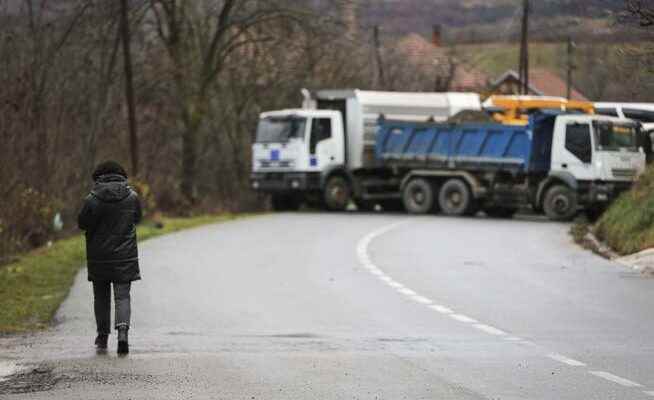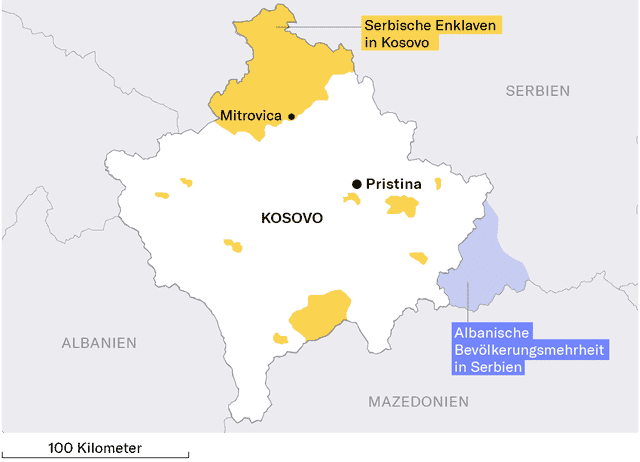Serbian demonstrators have been blocking the border crossings between Kosovo and Serbia for two days.
In northern Kosovo, Serbs are blocking the roads with trucks and construction vehicles.
lia./(Reuters, dpa) After the dispute over car license plates was settled, the conflict between Kosovo and Serbia flared up again. Serbian demonstrators in northern Kosovo have been blocking the roads to the two border crossings to Serbia since Saturday. There was an exchange of gunfire with the police on Sunday night.
With their protests, the demonstrators reacted to the arrest of a Serb who served as a police officer in Kosovo and is said to be responsible for attacks on election workers and police officers. The local elections were postponed from late December to April because of the riots. They are necessary because several Serbian mayors and community representatives in the area resigned in protest at the Kosovan government’s crackdown on Serbian license plates. With the mediation of the EU, a compromise was reached between Kosovo and Serbia on the matter.
NATO troops and an EU mission are monitoring the situation on the ground
Kosovan Prime Minister Albin Kurti described the demonstrators because of the compromise as “criminal gangs” who lacked even the “thintest pretext” for their protests.
With the license plates issue resolved and elections delayed, criminal gangs in the north of Kosova lack even the flimsiest pretext for barricades & violent attacks on Kosova Police. In cooperation with @NATO_KFORwe are working to address the situation quickly & peacefully.
— Albin Kurti (@albinkurti) December 11, 2022
Because of the tensions, NATO troops and the EU mission Eulex are also stationed in northern Kosovo, which is mostly inhabited by ethnic Serbs. The armored vehicles of the EU mission were shot at with a stun grenade on Saturday. On Sunday, EU foreign policy chief Josep Borrell warned both sides on Twitter of an escalation: The EU will not tolerate any attacks on its mission and generally no violence and criminal actions in the north. On Monday he repeated this warning before a meeting of EU foreign ministers: “The two sides must return to dialogue and discard the tendency to resolve the conflict on the street.”
#EU will not tolerate attacks on @EULEXKosovo or use of violent, criminal acts in the north. Barricades must be removed immediately by groups of Kosovo Serbs. Calm must be restored. EULEX will continue to coordinate w/Kosovo authorities & KFOR.
All actors must avoid escalation.
— Josep Borrell Fontelles (@JosepBorrellF) December 11, 2022
In the evening, Serbian President Aleksandar Vucic also called on the Kosovo Serbs not to use violence against the NATO troops and the members of the EU mission there. Serbia is trying to defuse tensions in the troubled region, Vucic said on Sunday. He also called for the release of all arrested Serbs from northern Kosovo.
Years of tension
To this day, Serbia is not ready to recognize Kosovo’s statehood. The small Balkan country is now almost exclusively inhabited by Albanians. About a third of around 120,000 ethnic Serbs live in an area that includes North Mitrovica and three other municipalities and that borders directly on Serbia.
In the enclave of North Mitrovica, Belgrade operates its own power structures, based on militant activists and criminals. They keep erecting roadblocks and causing violent incidents.

